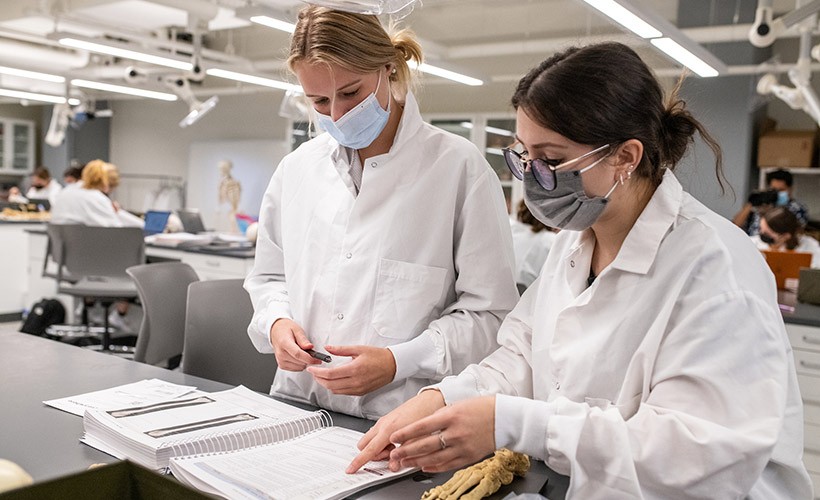HEALTH PROFESSIONS ADVISING

The Health Professions Advising Office is open to all students interested in a career in the health professions.
We work with students through every step—from the earliest exploratory stages, to searching for programs, to compiling courses and identifying experiential learning opportunities, to assembling and submitting applications. Our mission is to help every student find their fit, support them with all the resources they need and provide them with counsel every step of the way.
Villanova also has affiliate programs with the Kornberg School of Dentistry at the University of Pennsylvania, the Pennsylvania College of Optometry at Salus University, and the Philadelphia College of Osteopathic Medicine. Students interested in the UPenn program or the Salus program must apply as part of their freshman application to Villanova.
PREPARING OUR STUDENTS
Health professions schools do not have a preference in candidates’ undergraduate majors. No major will give you an “edge,” and no major will make you less “desirable.” You should choose a major you enjoy and excel in. Because of the quantity of science courses required for most health professions programs, many students choose science majors. Some of the most popular majors at Villanova are Biology, Biochemistry, Comprehensive Science and Psychology. Another popular major is Cognitive and Behavioral Neuroscience, within the psychology department. Please note that students are admitted to Villanova as declared CBN majors, so students interested in this major should select the program on their applications.
Health professions graduate programs no longer focus exclusively on grades and exam scores in making admissions decisions. Candidates must present portfolios of experiences demonstrating that they have examined themselves and the profession, determining they have found a good fit. Students will need to show they have developed the characteristics it takes to be a skilled health professional: an understanding of ethics, an appreciation and respect for diversity, a drive to help others, resilience in the face of challenge and an ability to function as part of a team, among other skills. At Villanova, students are fortunate to have the opportunity to develop many of these skills on campus: through coursework in Ethics, Peace and Justice, intergroup relations, as well as service-learning opportunities that integrate theory with experience. The undergraduate core requirement is made up largely of courses in the humanities and social sciences, requiring a large amount of critical thinking and writing. This will be helpful as students approach the new MCAT, with its expanded critical analysis and reasoning section.
As a health professions student, you will have at least two advisors to guide you. You will have an academic advisor, who will help you with your core requirements and your major, and a health professions advisor, who will coach you as you work towards your professional goal. We will help you with course planning and provide advice on extracurricular activities, timing your professional exam (MCAT, DAT, PCAT, etc.) and all aspects of your application.
There are many events throughout the year. Some are sponsored by the Health Professions Advising Office, others by one of the many student clubs—Pre-Medical Club, Pre-PA Club, Pre-Optometry Club, Pre-Dental Club, and more—and some by groups with overlapping interest—like the BRIDGE Society, the Career Center or the Alumni Association. Access the calendar of events.
The adjustment to college life can be stressful, and many students find the science courses required for health professions to be particularly challenging. This is not unusual, and our faculty and advisors are here to support students. The University also offers several tutoring and emotional support services, including Learning Support Services and the Counseling Center.
The Health Professions Advising Office also helps Villanova alumni with planning, preparing and applying to graduate programs in the health professions. Your path to health professions school will depend on your academic background, your time away from school, your health care experience, if applicable, and more. We invite you to meet with us for an assessment and help charting your next steps.
